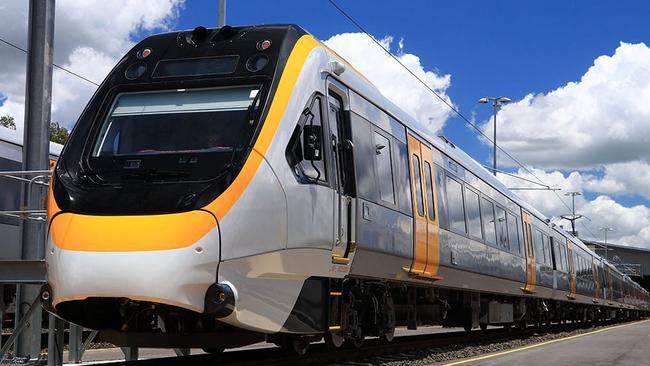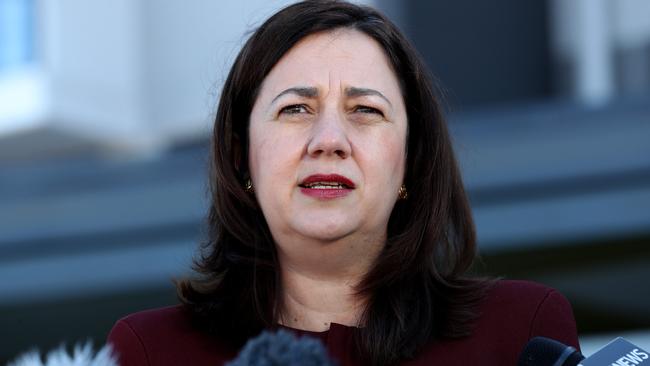Queensland bureaucrats knew trains violated disability laws: report
Public servants were warned Queensland’s new trains violated disability laws before a $4.4bn contract was signed.

Bureaucrats knew inaccessible toilets on Queensland’s newest passenger trains violated disability access laws before the $4.4 billion contract was signed, but were frightened of warning their superiors and assumed the problems could be fixed later on.
Following a scathing report into the New Generation Rollingstock debacle, the Palaszczuk government unveiled a $335.7 million “fix” that will have the 75 trains fully operational in early 2024 — five years behind schedule — and deliver larger, more accessible toilets for the disabled.
The inquiry by retired judge Michael Forde found the project was plagued by bureaucratic infighting, failures to follow procedure and “general acquiescence to non-compliance” by mid-level public servants with an incomplete grasp of the law.
It also revealed that Queensland-based contractor Downer Rail applied to re-enter the bidding process in March 2013 before the decision was made to purchase Indian-made trains from Canadian firm Bombardier, but the Liberal National government refused to reopen the process.
Labor previously blamed the NGR project’s woes on the LNP’s decision to source cheaper trains from India, but inquiry head Michael Forde said Bombardier built the trains to specifications approved by the government.

Although the inquiry cleared Bombardier, Premier Annastacia Palaszczuk maintained the modifications would be performed at Downer Rail’s workshops in the marginal electorate of Maryborough, rather than at Bombardier’s purpose-built maintenance facility near Ipswich.
The Australian yesterday reported the government had received legal advice through Crown law estimating taxpayers’ liability to the Bombardier-led NGR consortium of about $250m following the affair.
Mr Forde, a retired judge, said: “The parties signed an agreement that was non-compliant. The consequences of that are under discussion at the moment and I don’t wish to comment on it.”
The inquiry’s terms of reference focused on the procurement process, which began in 2008, and not ongoing rectification work.
Ms Palaszczuk, a former transport minister in the Bligh government, said she was “not going to play the blame game”.
“What happened in past governments is in the past and I’m focused on the future,” she said.
LNP Opposition Leader Deb Frecklington said Ms Palaszczuk was “up to her neck” in the affair.
“Ms Palaszczuk was caught out by the report done by her own Labor mate,” she said, alluding to Mr Forde’s unsuccessful run at state parliament in 1980.
“The attack ads Ms Palaszczuk ran during the campaign were clearly lies and xenophobic.”
The Premier accepted Mr Forde’s 24 recommendations, including highlighting the perils of senior executives meeting with bidders during a tender process.
Ms Palaszczuk, as transport minister in 2011, overruled advice against meeting an NGR proponent, although she conferred with a probity adviser first and yesterday insisted the procurement process was not discussed.



